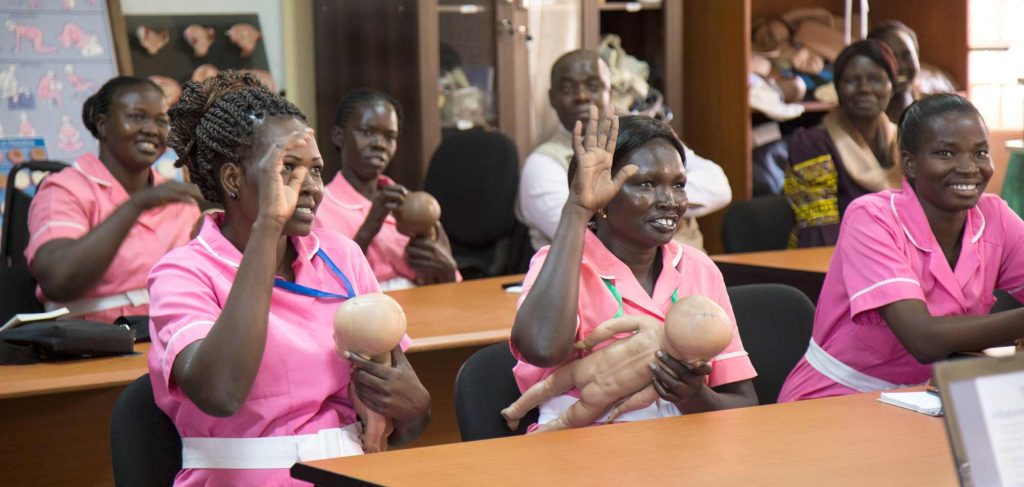
Health Resilience
Health Services Support
Health resilience is the ability of a community to use its assets to strengthen public health and healthcare systems and to improve the community’s physical, behavioral and social health to withstand, adapt to and recover from adversity.
Improved health-seeking behaviour adopted in the pre-crisis stage goes a long way toward preparing communities and helping them absorb sudden shocks and remain resilient during a crisis period. For example, if people adopt proper sanitation and hygiene practices, communities will more likely be safe and resilient during a cholera outbreak. Immunising children before an outbreak helps protect them against a measles or polio epidemic. And social and behaviour change, along with proper infection prevention and control practices, can keep communities safe from contracting other communicable diseases, such as Ebola.
When countries are affected by natural disasters such as earthquakes, floods and hurricanes, ensuring health system resilience involves efforts to quickly establish lifesaving services and to restore the health system to its pre-crisis status (and beyond) by rebuilding health infrastructure, which ensures access to medical supplies and strengthens emergency response capabilities. A multidisciplinary approach to improving the overall quality of healthcare is necessary when developing health resilience. This approach should include engagement of specialists in reproductive and maternal health, mental health, nutrition, and water, sanitation and hygiene (WASH), to ensure that the key determinants of good health are addressed. For example, as we’ve seen during our responses to Ebola outbreaks, WASH can be a major gap in health facilities.
An efficient, holistic approach to providing services is necessary for health system resilience. Assessing gaps and addressing resource needs for quality service delivery are the keys to providing optimal healthcare during a crisis. For example, midwives can be trained, but without appropriate supplies they can neither function optimally nor contribute effectively to creating a resilient health system.
Health workforce competence, with the ability to identify threats early at local levels, and with the capacity at both local and national levels to take immediate and effective action, is essential in ensuring health system resilience.
Our Response
Training and capacity building, through pre-service and in-service training, are key elements of health resilience. They also lie at the core of International Medical Corps’ work. For example, we have worked in some of the world’s toughest environments to strengthen reproductive, maternal, newborn and child health. In South Sudan, we support two midwifery and nursing schools that offer competency-based training with more than 30 months of practical and theoretical classroom components. Since 2011, the schools have graduated more than 630 registered midwives. We also have supported midwifery training programmes in remote, mountainous areas of eastern Afghanistan. In Yemen, we’ve conducted refresher training for midwives on emergency obstetrics and newborn care that is aligned with international theoretical and competency-based standards.
During the COVID-19 pandemic, we established a state-of-the-art infectious disease unit (IDU) in South Sudan that was designed to handle critical cases. We equipped the facility with quality equipment, including advanced ventilators, protective gear and reliable diagnostic tools, to ensure it could deliver top-quality intensive care to patients. To prepare healthcare workers, we launched comprehensive training programmes focused on critical care for infectious diseases, providing doctors, nurses and support staff with the skills to manage complex cases safely and effectively. The IDU now serves as a dedicated isolation and treatment centre that is ready to respond to any infectious disease outbreak, from cholera to potential future pandemics. We transformed a crisis response into a lasting asset.
In 2024, we trained more than 14,000 healthcare workers on health topics ranging from basic life support to the rational use of medications.
Also in 2024, we reached almost 949,000 community members with reproductive healthcare services, ensuring that deliveries were assisted by skilled birth attendants, that pregnant women attended at least two antenatal care visits and that newborns received postnatal care within three days of delivery.